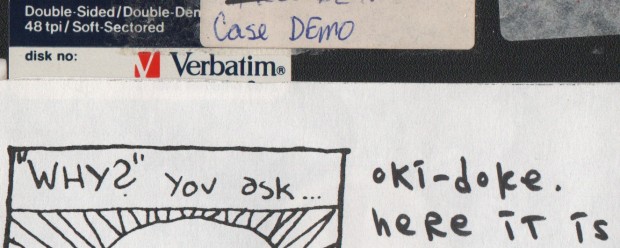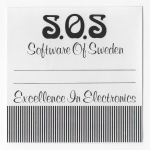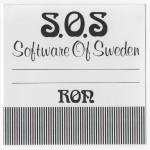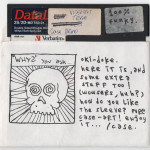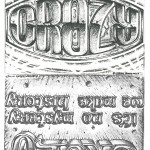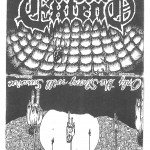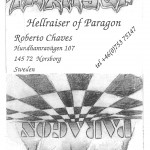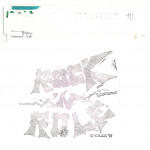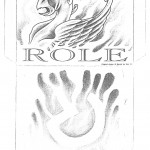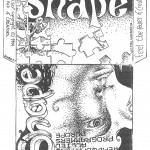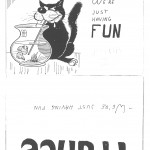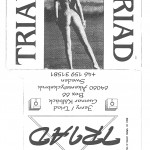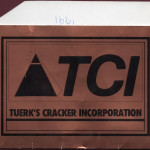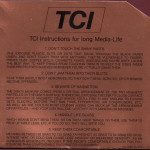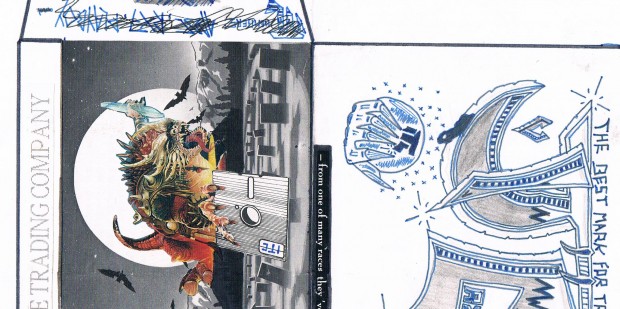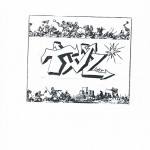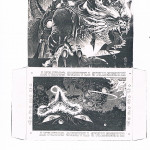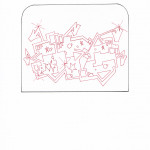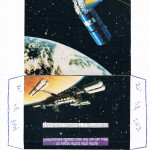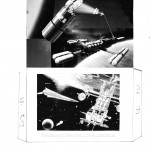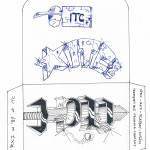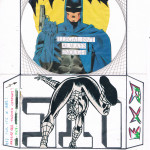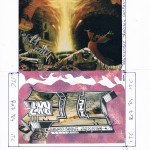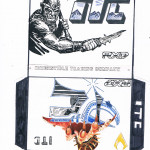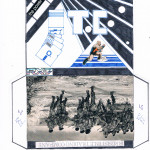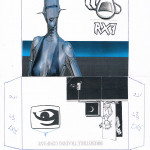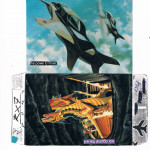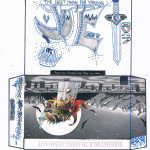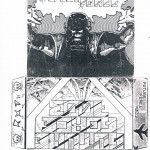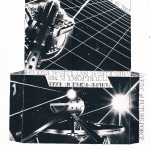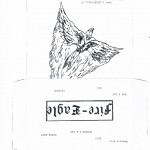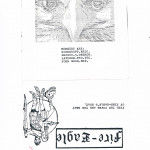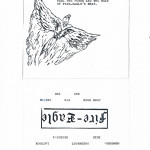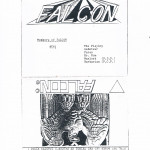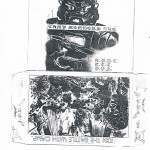There’s one artifact in our anonymous contributor’s collection which is so unusual that it’s worth dedicating a single post to. On first sight, it’s rather inconspicuous: a 5,25″ C64 disk sleeve from 1987, looking like many others. In fact, while browsing through a disk box, one could mistake it for a random commercial software sleeve – there are no fancy stickers, no scribbling, no graffiti sketches or anything else that normally makes a scene disk cover stand out. However, the inscription, TUERK’S CRACKER INCORPORATION, immediately reveals the sleeve’s subcultural origins. And makes it intriguing in several aspects.
First of all, unlike the overwhelming majority of scene disk covers, this sleeve is industrially produced. It’s made of thick cardboard with a shimmery bronze surface. One can only speculate how expensive it must have been to get the sleeves produced and how a cracker group could afford it. Perhaps, given that boundaries between crackers and small-scale commercial piracy in the mid-1980s were rather vague, and selling cracked games was not necessarily frowned upon, the group made more than just pocket money by providing paying customers with software. And thus they could not only afford fancy sleeves, but actually needed them: since competition on the black market was big, it was important to achieve customer retention by building trust. And trust could be achieved by disk sleeves that looked just as slick as the commercial ones.
Secondly, the back side is particularly interesting. Handling tips for disks were a typical attribute of commercially produced disk sleeves. These, however, were apparently not just copied. The partially awkward English hints towards the fact that they must have been written by the crackers themselves – who seem to have professed quite a sentimental relationship to their magnetic media. If handled wrongly or even given “dirty looks”, the disks might “become offended”, or even worse, suffer “amnesia or madness”. Obviously there’s quite some humour in these lines, but given the prices for good floppy disks in the mid-1980s, a more-than-careful attitude towards floppies is not completely off the hook.
There is not much known about Tuerk’s Cracker Incorporation (TCI). According to CSDb, the group was based in Germany and produced a number of cracks between 1984 and 1986. A search for “tuerk” on scrolltexts.com reveals that TCI were not mere “local lamers” – they were embedded into the (inter)national cracking circuit and were greeted by major groups such as Alpha Flight and Future Projects. TCI’s most likely founder was a swapper going by the name of The Tuerk. According to CSDb, he was a Turkish guy called Tural, hailing from Izmir but living in Frankfurt am Main, Germany. Migrants in the early German cracking scene were not completely unheard of, but they were still rather rare. Home computers were a predominantly middle-class commodity, out of reach for children of migrant labourers. 1980s sociological studies on teenage home computer users in Germany point out the very low percentage of migrant children amongst “computer kids”. How did Tural come to call a C64 his own? How did he get into the scene? What was his standing within this predominantly white, middle-class community? We don’t know, but we would be keen to find out. If you know more about Tuerk’s Cracking Incorporation, were a member, or even are The Tuerk himself, please get in touch.
High-quality scans of the sleeve, complete with metadata, can be downloaded here.
PS: After this post went online, Sim/ex-Razor 1911 suggested in a comment on social networks that the strange wording in the disk handling tips may stem from direkt word-for-word translation from Turkish to English.
